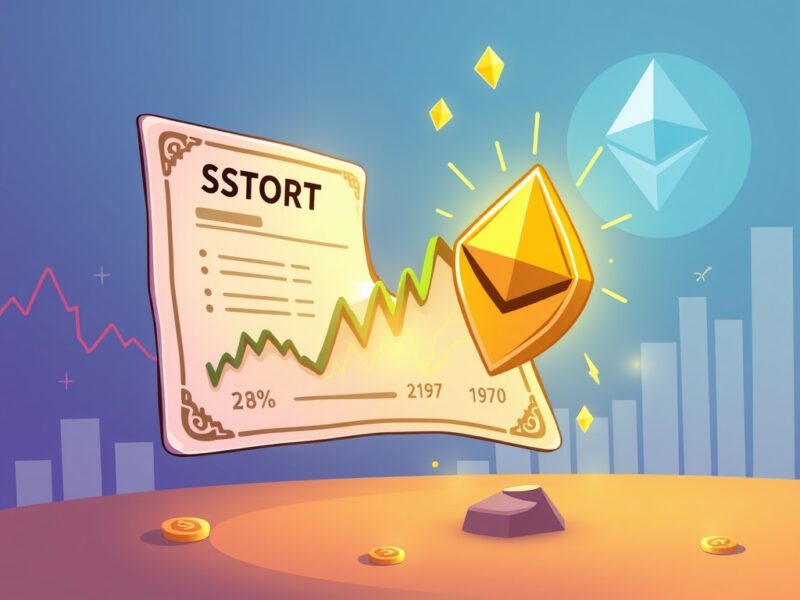Key Insights:
- ECB is testing Ethereum, Solana for potential digital euro infrastructure.
- Public vs private debate mirrors U.S. stablecoins vs. China’s CBDC model.
- 98% dominance of dollar stablecoins flagged as risk to EU autonomy.
- Digital euro still in design phase, no tech framework finalized.
Un recent crypto news, European policymakers are accelerating work on a digital euro by looking at public blockchain networks for its infrastructure.
On August 22, 2025, the Financial Times reported that EU officials are,
According to FT sources, the ECB is weighing a public blockchain model — akin to Ethereum or Solana — instead of a closed, private ledger.
The move comes amid growing concern that US dollar-pegged stablecoins – now roughly 98% of the global stablecoin market – could erode the euro’s international role.
In July 2025, the US passed the GENIUS Act to regulate dollar stablecoins, intensifying pressure on Europe.
ECB board member Piero Cipollone called for a digital euro to protect European financial sovereignty, as he warned,
Ethereum, Solana Under Consideration
Under the new plan, the ECB could issue the digital euro on a permissionless public blockchain such as Ethereum or Solana.
This would mark a sharp shift from earlier drafts that envisioned a private, ECB-controlled network.
Public chains offer global reach and innovation: anyone can participate in Ethereum or Solana, and they have robust ecosystems for payments and smart contracts.
As per a crypto news report by FT, a source told reporters, moving to a public chain is,
Advocates say such a model could speed cross-border transactions and link the digital euro to decentralized finance. However, a public ledger also raises data and privacy questions.
Unlike private ledgers, every transaction is visible on-chain. EU officials will weigh these trade‑offs.
A source familiar with the discussions noted that a private digital euro would resemble China’s e‑CNY model, whereas a public approach is closer to US-style stablecoins.
The final design may end up hybrid: public for scale combined with privacy or permissioned layers for sensitive payments. The ECB has not confirmed these reports.
US Stablecoin Law Spurs EU Action
The timing reflects competitive pressure. In other crypto news, in mid‑July 2025, the US Congress and President signed the GENIUS Act, the first federal stablecoin law.
The law creates a clear framework for dollar-backed crypto tokens and is expected to boost issuance of regulated US stablecoins.
The stablecoin sector is already large: CoinGecko estimated its market cap at $260+ billion in mid‑2025.
ECB officials fear that unregulated dollar stablecoins could drain deposits and payments activity from Europe.
As Cipollone warned in April, US stablecoins “dominate the stablecoin market at 98%.” In January 2025, Cipollone saw “growing threat” from dollar tokens to banks and monetary policy, saying “that’s why we need a digital euro.”
The EU has also been finalizing its own crypto rules (the MiCA regulation for stablecoins and crypto-assets).
But MiCA targets private crypto issuers. It does not deliver a European CBDC. The ECB’s pivot to consider public blockchains is a direct response to US regulatory advances.
A Reuters source notes that digital payments in Europe rely heavily on US companies like Visa, posing “a potential financial vulnerability.”
EU officials now aim to match Washington’s move by accelerating the digital euro.
Crypto News: Digital Euro Project Progress
The digital euro is a central bank digital currency (CBDC) proposal from the ECB and national central banks.
It would be a digital form of central bank money – not a cryptocurrency – and would be available free to all citizens.
Like physical cash, the digital euro would be legal tender throughout the 20‑country euro area, secure and privacy‑protected. The ECB stresses it would be “backed by a central bank” and not a crypto‑asset.
Users would hold it in electronic wallets via banks or approved providers and could make instant payments online or in stores, even offline.
The project launched its preparation phase on November 1, 2023, after an earlier investigation phase.
Since then, the ECB has engaged with banks, retailers, and citizens. In July 2025, the ECB published its third progress report on the preparation phase.
It notes that about 50 industry experts (30+ organizations) have helped draft a harmonized rulebook, and roughly 70 firms have tested prototype features via a new “innovation platform.”
The ECB also convened focus groups of consumers and merchants to refine requirements.
ECB board member Piero Cipollone (who leads the task force) said this work stays “on track” in order to meet the request of EU leaders to speed up a digital euro.
Source: https://www.thecoinrepublic.com/2025/08/22/ethereum-solana-as-backbone-for-digital-euro-crypto-news-report/


